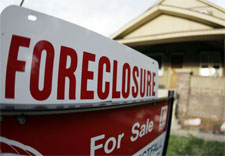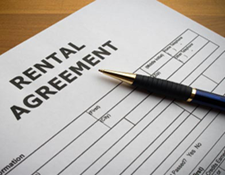 In October of 2012, we blogged about a United States Bankruptcy Court case that addressed the proper interpretation and effect of Civil Code Section 5650 allowing for a HOA to recover delinquent assessments, along with “reasonable costs incurred in collecting the delinquent assessment, including reasonable attorney’s fees.” In sum, the Court ruled that the delinquent homeowner was not liable for the fees and costs imposed by the HOA’s collection company that was operating on a contingency basis. Because the HOA was not responsible to pay the collection company’s fees directly, those fees were not costs “incurred” by the HOA which the HOA was legally entitled to recover from the delinquent homeowner. We then predicted that the case may affect the terms under which collection companies contract with HOAs, especially those companies that operate on a contingency (“no-cost”) basis.
In October of 2012, we blogged about a United States Bankruptcy Court case that addressed the proper interpretation and effect of Civil Code Section 5650 allowing for a HOA to recover delinquent assessments, along with “reasonable costs incurred in collecting the delinquent assessment, including reasonable attorney’s fees.” In sum, the Court ruled that the delinquent homeowner was not liable for the fees and costs imposed by the HOA’s collection company that was operating on a contingency basis. Because the HOA was not responsible to pay the collection company’s fees directly, those fees were not costs “incurred” by the HOA which the HOA was legally entitled to recover from the delinquent homeowner. We then predicted that the case may affect the terms under which collection companies contract with HOAs, especially those companies that operate on a contingency (“no-cost”) basis.
Another case currently being litigated in Northern California is addressing this same issue. Though the case is still pending, a recent order issued by the United States District Court, N.D., California illustrates the how the courts may be trending with regard to the fees and costs imposed by collection companies that contract with HOAs on a contingency basis:
“Although no California appellate court has directly addressed whether, as here, a third-party vendor acting on behalf of a HOA can lawfully charge a delinquent homeowner fees not incurred by the HOA, the aforementioned authorities prompt a conclusion that [the collection company’s] right to impose debt collection fees against [the homeowner] extends no further than the [HOA’s] right to do the same….[the collection company’s] fees apparently are neither incurred nor paid by the HOAs that contract for the company’s ‘no-cost’ services. If California law nonetheless entitled [the collection company] to impose the fees of its choosing against homeowners…the company would wield unchecked power to extract a cascade of fees and costs from a HOA’s delinquent members.” (Emphasis added).
|
There has been a string of recent court cases illustrating how now, more than ever, HOAs and collection companies are being scrutinized for their collection procedures. HOA Boards and managers should be cognizant of the legal requirements with regard to assessment collection, and how deviations from those requirements may expose the HOA to liability. |
 HOA Lawyer Blog
HOA Lawyer Blog


 Be sure to check out Steve Tinnelly’s latest article he authored for the “OC View,” an educational bi-monthly magazine published by the
Be sure to check out Steve Tinnelly’s latest article he authored for the “OC View,” an educational bi-monthly magazine published by the  Our
Our 
 Our
Our 


 *New Resource
*New Resource A new subsidiary of a national asset management firm has been founded to help resolve some of the problems experienced by Homeowners Associations (“HOAs”) and the mortgage industry in the resale of foreclosed and defaulting residential properties. A
A new subsidiary of a national asset management firm has been founded to help resolve some of the problems experienced by Homeowners Associations (“HOAs”) and the mortgage industry in the resale of foreclosed and defaulting residential properties. A